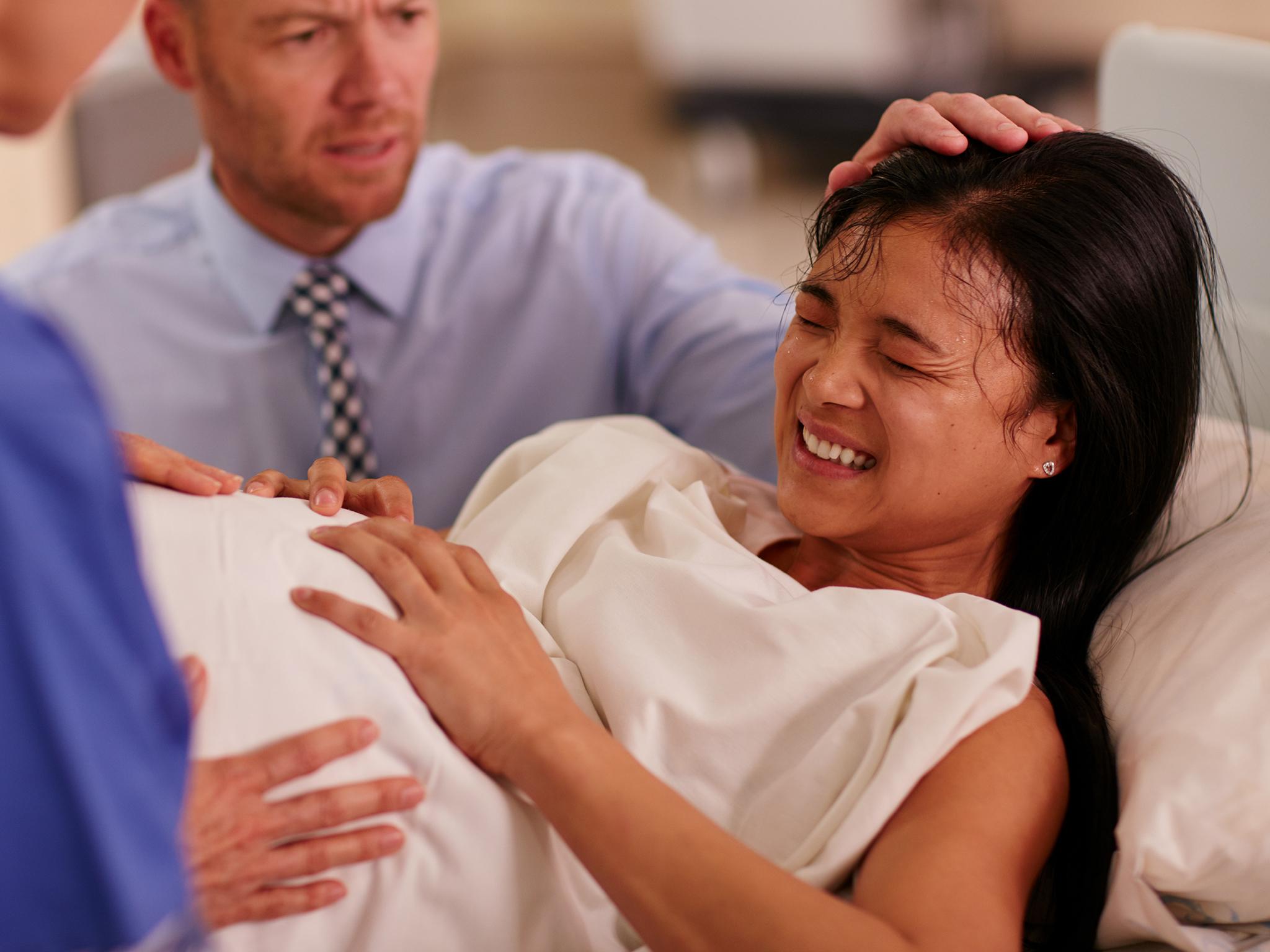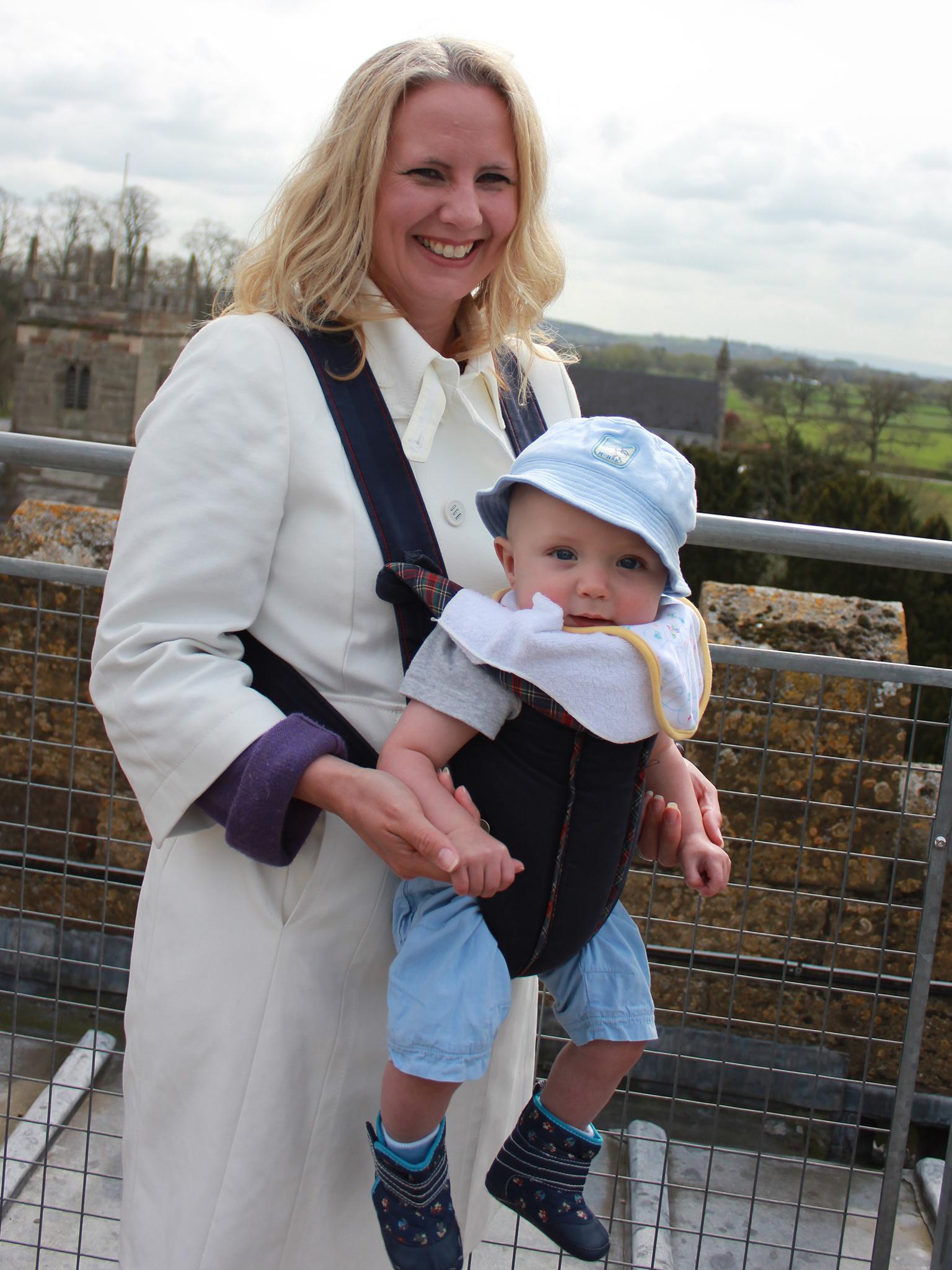Tokophobia: The women who are afraid of pregnancy and childbirth
The crippling fear of pregnancy can lead women seek abortions or put off conceiving, according to experts

Your support helps us to tell the story
From reproductive rights to climate change to Big Tech, The Independent is on the ground when the story is developing. Whether it's investigating the financials of Elon Musk's pro-Trump PAC or producing our latest documentary, 'The A Word', which shines a light on the American women fighting for reproductive rights, we know how important it is to parse out the facts from the messaging.
At such a critical moment in US history, we need reporters on the ground. Your donation allows us to keep sending journalists to speak to both sides of the story.
The Independent is trusted by Americans across the entire political spectrum. And unlike many other quality news outlets, we choose not to lock Americans out of our reporting and analysis with paywalls. We believe quality journalism should be available to everyone, paid for by those who can afford it.
Your support makes all the difference.Giving birth to a child is one of the most intense experiences the body can go through, so it is understandable that many women are nervous about pregnancy. But for the women who suffer from tokophobia, the anxiety surrounding labour can be debilitating.
Tokophobia is a pathological fear of pregnancy so severe that it can impact a woman's decision to have children. An estimated one in ten women who are child-free have avoided pregnancy because of a profound fear, while a recent survey for Mumset showed that a problematic birth instilled a fear in 7 per cent of women. Triggers can also include hearing negative stories, watching programmes depicting shocking birth experiences, as well as miscarriages and still births. Pain and a loss of control during labour are also common.
“We see women so certain they cannot continue with the pregnancy that they have an abortion," Clare Murphy, director of external affairs, British Pregnancy Advisory Service, told The Independent. "This must absolutely and always be her choice to make, but we must also ensure the services and support are in place to ensure that women can make the choice to continue as well."

“Some women’s fear is not simply the birth, but the horror of having another being inside them or of splitting in two. These women need intense support. We have had cases where women have ended up in mother and baby psychiatric units because they are so afraid,” says Maureen Treadwell, the co-founder of the Birth Trauma Association.
For expectant mothers, asking to have a caesarean can make them feel more in control, says Murphy. But she says all too often women can be dismissed if they ask for the procedure, and argues that healthcare professionals should offer women afraid of vaginal birth more options.
She cautions that women who are rightly fearful of childbirth shouldn’t be labelled as abnormal or pathologised if they have developed post-traumatic stress disorder from past experiences.
“We need to look at ways to reduce secondary tokophobia by addressing the issues that give rise to traumatic childbirth by ensuring women get the support and pain relief they want, ensuring consent to avoid loss of sense of control, ensuring realistic antenatal information.”
Helen Bremner, an NHS hypnotherapist and former intensive care nurse, experienced tokophobia after the traumatic pregnancy and birth of her first child Edward. Bremner suffered from hyperemesis, or extreme vomiting sickness, for eight months. Her son’s head was so big she was in labour for four days. Eventually, he was delivered via a caesarean section.
“I feared how the baby would get out the second time, and my womb rupturing if I went into labour, or the baby got too big," she says.
“The idea that a whole new life can grow inside you from one cell, and become a person inside you is both magical and overwhelming. After my birth trauma, I became panicky around pregnant ladies and felt more envy that they could enjoy their pregnancies and reasonably anticipate 'normal' deliveries, and more of a failure that I couldn't give birth to my baby myself." This was despite Bremner wanting a second child.
“I worried that I would be forced to go through labour at risk to my second baby, especially if I went into labour spontaneously.
Bremner says that hypnotherapy has helped reduce her anxiety, and has used her experiences to set up a service to help women with birth fears and traumatic experiences.
"I think I will always be a bit sad that I couldn't enjoy pregnancy and birth as others did and do, but it's not as distressing as it once was."
Dr Patrick O'Brien, spokesperson for the Royal College of Obstetricians and Gynaecologists, chimes that is possible for women to recover from tokophobia. “Women should be offered counselling, such as cognitive behavioural therapy, to help them address their fears, and be given the opportunity to talk through their concerns with their doctor."
Midwives, obstetricians, and perinatal mental health specialists can help to allay fears and help women choose the best way for their baby to be delivered, he adds.
After her shocking experience, Bremner’s message for other fearful women is clear.
"Like any phobia, there is help to get you through this. The magic of a new life may be in itself sufficient incentive to get past your fear. If it's not, there are people like me, who have been through similar experiences and come out the other side smiling, and with beautiful children. And there are also people like me who can help using therapies such as counselling and hypnotherapy.
“People are phobic of all sorts of things which other people find innocuous. It's not courage if you face it and you're not scared. To be scared, and do it anyway, that's courage."
Join our commenting forum
Join thought-provoking conversations, follow other Independent readers and see their replies
Comments